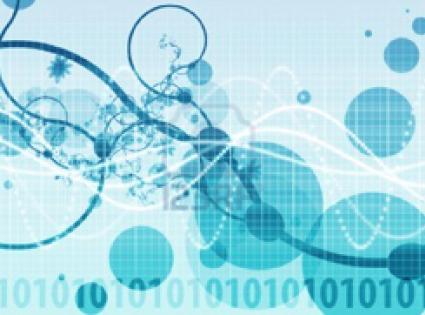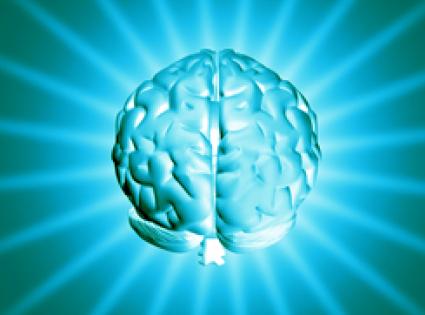Science Policy and Scientific Development
Course Objectives
- This course aims to provide a broad overview of the central problems of science policy
Specific Objectives
That students know and understand:
- the importance of the relationship between science and politics in the development of modern science and technology
- the central role of the State and its scientific policies in the scientific and technological development
- the specific content of science policies in democracies and dictatorships
- the relationship between scientists and politicians
- the impact of political intervention on research and on neutrality and objectivity
- the kind of intervention on the scientific community involve science policies
Contents
- Science policy studies in the framework of social studies of science, philosophy and history of science.
- Introduction: the relationship between science and politics. - Science and politics under democracy
- the model of the social contract for science
- the boundary between science and politics: epistemic and moral values of science
- Epistemological questions.
- The New social contract for science and technology. - Cases
-The Spanish Social Contract for Science 1907-1939
- Science and politics in Europe and the US - Science and politics under dictatorship
- the boundary between science and politics: ideology and epistemic values
- Political intervention on research
- Intervention on scientific community
- Ideology and effectiveness.
- Good science/ bad science. - Cases
- Science and technology in Nazi Germany
- Science and Francoism
Basic and complementary bibliography
BALMER, B. (2001): Britain and Biological Warfare. Expert Advice and Science Policy, 1930-65, Great Britain, Palgrave.
BROWN, M. (2009): Science in Democracy . Expertise, Institutions and Representation, Cambridge, Massachusetts, London, The MIT Press.
BUSH, W. (1945): Science: The Endless Frontier, Washington, National Science Foundation.
CLARET, J. (2006): El atroz desmoche, Barcelona, Crítica.
GOMEZ, A. (2014): “Frontera e integridad en el contrato social para la ciencia española, 1907-1939”. Dynamis, v.34, 465-487.
GÓMEZ, A. (2013): “Ciencia y política: una cuestión de fronteras”, en GÓMEZ, A. CANALES FCO. (2013), pp.15-34.
GÓMEZ, A. CANALES A.FCO. BALMER, B. (2015) (Eds.): Science Policies in Twentieth-Century Dictatorships: Spain, Italy and Argentina, Londres, Ashgate, (Forthcoming)
GÓMEZ, A. CANALES A.FCO. (2013): (Eds.) Estudios Políticos de la Ciencia. Políticas y desarrollo científico en el siglo XX, Madrid, Plaza y Valdés.
GOMEZ, A and CANALES, ANTONIO FCO., (2009), (Eds.): Ciencia y fascismo: la ciencia española de postguerra, Barcelona, Laertes, 2009.
GOMEZ, A and CANALES, ANTONIO FCO., “The rebels and the new Spanish scientific culture”, Journal of War and Culture Studies , v.2, 95-112, 2009
GUSTON, D.H. (2000): Beetween Politics and Science. Assuring the Integrity and Productivity of Research, Cambridge, Cambridge University Press.
HUERTAS, R. (2002): Los médicos de la mente: Lafora, Vallejo, Garma., Tres Cantos, Nívola.
Laporta, F. J, et.al. (1987): “La Junta para la Ampliación de Estudios”, 2ª Parte; Arbor, nº. 499.
JASANOFF, S. (1996): “Beyond epistemology: Relativism and engagement in the politics of science”, Social Studies of Science, 26, pp.393-418.
KITCHER, P. (2001): Science, truth, and democracy, Oxford, Oxford University Press.
MALET, A. “El papel político de la Delegación del CSIC en Barcelona (1941-1956)”, Arbor, 160 : 413-439
MAIOCCHI, R. (2004): Scienza e fascismo, Roma, Carocci.
Mitcham, C. and frodeman, r. (eds.), (2004): Toward a Philosophy of Science Policy: Approachs and Issues, Philosophy Today, Philosophy Department of De Paul University.
ROMERO DE PABLOS, A. y SANTESMASES, M.J. (eds.) (2008): Cien años de política científica en España, Madrid, Fundación BBVA.
SÁNCHEZ RON, J.M. y LAFUENTE, A. (eds.) (2007): El laboratorio de España. La Junta para Ampliación de Estudios e Investigaciones Científicas (1907-1939). Sociedad Estatal de Conmemoraciones Culturales/Amigos de la Residencia de Estudiantes, Madrid.
SÁNCHEZ RON, J. M. AND GARCÍA-VELASCO, J. (eds.) (2010), 100 años de la JAE. La Junta para la Ampliación de Estudios e 7Investigaciones Científicas en su Centenario; Madrid, Publicaciones de la Residencia de Estudiantes y Fundación Francisco Giner de los Ríos ILE, 2 vols. pp.94-215.
SZÖLLOSÖSI-JANZE, M. (ed.) (2001): Science in the Third Reich, Berg, Oxford, New York.
TRILLAS, E., et. al. (1987): La Junta de Ampliación de Estudios (1ª y 2ª parte). Arbor, 493.
WALKER, M. (1995): Nazi Science, Myth, Truth, and the German Atomic Bomb, Perseus Publishing, Cambridge, Massachusetts.
Skills
Basic skills
BS6. To have a strong knowledge base that allows them to innovate in the development and/or implementation of ideas, especially for research purposes.
BS7. The ability to apply the knowledge they have acquired and their ability to solve problems in new or little known areas within wider (or multidisciplinary) contexts related to their field of study.
BS8. The ability to integrate knowledge and deal with the complexities of forming opinions based on incomplete or limited information, including reflections on social responsibilities and ethics.
BS9. The ability to clearly and unambiguously communicate conclusions and the knowledge and reasons behind them to specialized and non-specialized audiences.
BS10. Learning skills to carry out further studies and research in a self-directed and autonomous way.
General skills
GS1. Students should be able to produce readable, detailed and technically correct documents and research work that meets the current international standards for the disciplines.
Specific skills
SS1. The ability to identify traditional and current knowledge specific to the field of logic and philosophy of science, as well as the different trends of thought and tradition involved.
SS2. Mastery of the analytical tools provided by philosophy to facilitate the clear identification of the semantic, logical, epistemological, ontological, axiological and ethical factors that are present in science and technology.
SS3. The ability to assess disputes, considering and overviewing alternatives to decide upon the better justified and reasoned parts.
SS4. To be able to identify arguments as they appear in texts, dialogues and discussions, assessing their accuracy, acceptability and persuasiveness.
Teaching Methodology
Assessment System
- Lessons supported by audiovisual material.
- Practical classes: reading seminar and complementary activities.
- Guided work: Research essays on the topics and problems of the course
- Tutorials: Work Supervision and monitoring of the learning of the subject.
Study time and individual work
- Total hours: 125 hours
- Total on-site lessons: 10hours
- Total on-site theoretical lessons: 10hours
Total hours individual work: 115 hours - Tutorials: 10 hours
- Tasks to be done along the semester: 73 hours
- Final exam or final essay supervised by the teacher: 32 hours







